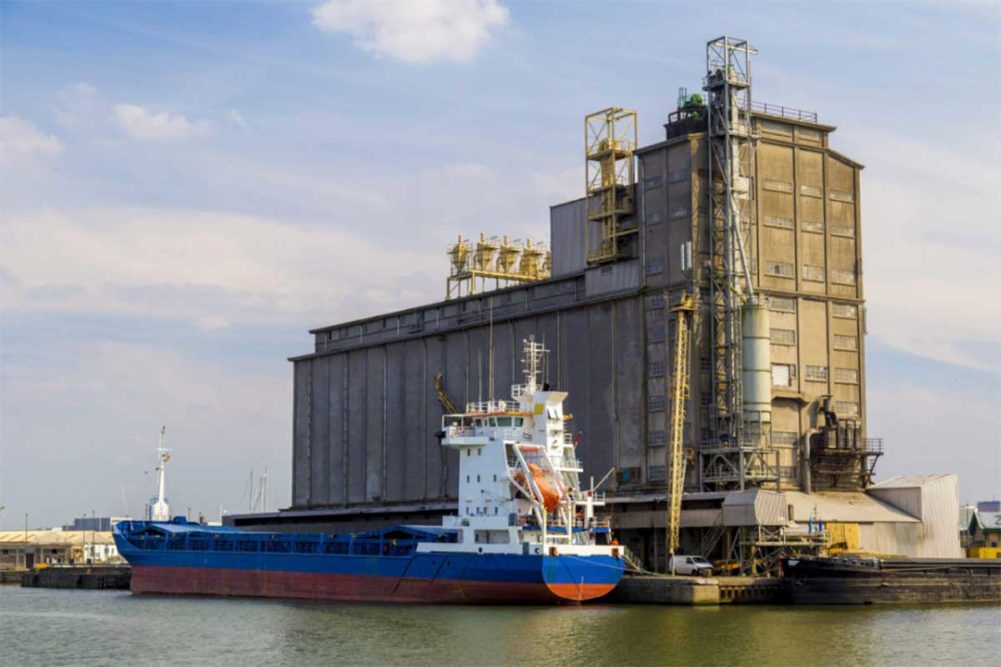WASHINGTON — US agriculture groups are hailing the passage of the Infrastructure and Jobs Act, which was passed by the House of Representatives on Nov. 5 after weeks of debate and delays.
The bill, which US President Joe Biden said he will sign into law, will provide much-needed investments to modernize the US transportation system, including the locks and dams on the major Midwestern waterways that carries most of the country’s exported grain.
Agricultural groups have been lobbying with Congress for decades for funding to modernize the country’s grain transportation infrastructure.
“A comprehensive transportation infrastructure bill, while popular, has long been elusive,” said Mike Seyfert, president and chief executive officer of the NGFA. “By sending the Infrastructure Investment and Jobs Act to the president’s desk, Congress has seized an exceptional opportunity to boost the competitiveness of American agriculture. We commend the Senate and president for negotiating this legislation last summer and urge enactment as soon as possible.”
The bipartisan legislation would increase infrastructure spending by $550 billion over five years, including an additional $110 billion in US roads and bridges, $65 billion for broadband, and approximately $17 billion for ports and waterways. The latter includes $2.5 billion specifically for inland waterways construction projects.
The bill also includes a number of provisions designed to boost the resiliency of the agricultural supply chain, including $10 billion in grants to upgrade and strengthen the electric grid, an apprenticeship pilot program to address the nationwide truck driver shortage, as well as authorizing further investments in cybersecurity.
“NGFA members rely on a robust and competitive transportation system, including US highways, bridges, inland waterways, ports and railways, to efficiently and competitively serve domestic and global markets,” Mr. Seyfert said. “The Infrastructure Investment and Jobs Act will enhance the efficient and cost-effective transport of agricultural and food products resulting in substantial contributions and opportunities for US economic growth and trade.”
Chris Edgington, president of the National Corn Growers Association, called the bill “a once-in-a-generation infrastructure investment that will help farmers for years to come.”
He noted that 60% of corn exports move on the inland waterways system, which has been functioning with locks, dams and other infrastructure, much of which was built more than 80 years ago.
Project-specific funding will be allocated in a detailed spend plan by the US Army Corps of Engineers’ Chief of Engineers and must be submitted to the House and Senate no later than 60 days after enactment. Starting no later than 120 days after enactment of the bill, the Chief of Engineers shall provide a monthly report to the Committees on Appropriations of the House of Representatives and the Senate, detailing the allocation and obligation of funds, and new construction projects selected to be initiated.
Tracy Zea, president and CEO of the Waterways Council, Inc., expressed gratitude that the bill had finally passed. Mr. Zea said the WCI “is looking forward to working with congressional leaders and the administration to implement the 2020 Capital Investment Strategy to significantly modernize the US Inland Waterways Transportation System.”
The passing of the bill was also a victory for the US railroad industry, as it includes nearly $845 million per year for highway-rail grade crossing safety and elimination projects and an average of $5.55 billion per year for discretionary infrastructure grant programs, including $1 billion per year for the Consolidated Rail Infrastructure and Safety Improvement (CRISI) grant program, which provides essential support to short line and passenger railroads as well as state departments of transportation.
“As we continue to navigate supply chain challenges, the need for the thoughtful funding and policy solutions over the long term that this bipartisan package delivers are even more clear,” said Ian Jefferies, president and CEO of the AAR. “Thanks to the hard work of many, our nation will make the significant, long-overdue investments we need to modernize our public infrastructure, enhance safety and support future economic growth.”





